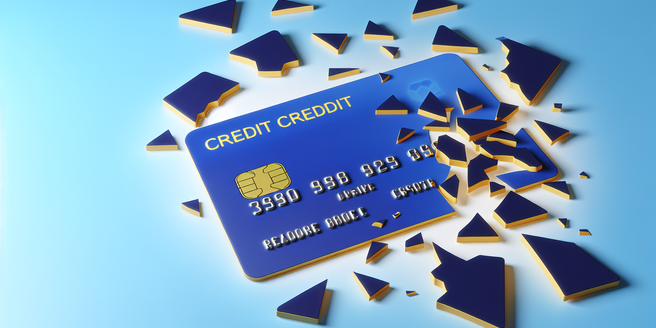Understanding Bankruptcy: Types and Process
Bankruptcy is a legal process that individuals or businesses undergo when they can’t repay the debts they owe to creditors. It’s important to understand that there are different kinds of bankruptcy. Chapter 7 and Chapter 13 bankruptcy are two common types. Chapter 7 is a liquidation bankruptcy where you must sell your non-exempt property to settle the debts. Chapter 13 is a reorganization bankruptcy where you create a repayment plan to pay creditors over time.
Understanding the process of bankruptcy is vital. The process begins when a debtor or creditor files a petition with the court. For chapter 7, non-exempt assets are sold, and the proceeds are distributed to the creditors. Chapter 13 involves creating a repayment plan. After all debts are handled, the bankruptcy is discharged, providing a clean slate.
How Bankruptcy Affects Your Credit Score
Bankruptcy impacts your credit score significantly as it indicates non-payment of your debts. Lenders look at your credit score to determine your financial trustworthiness. Hence, having bankruptcy on your credit history can lower your score by 200 points or more. This makes getting new credit extremely difficult.
Whether it’s Chapter 7 or Chapter 13 bankruptcy, both will leave a negative impact on your credit score. However, because Chapter 13 involves repaying some amount of debt, it’s slightly less damaging than Chapter 7. Lenders may view Chapter 13 as an attempt to fulfill your financial obligations.
Duration of a Bankruptcy on Your Credit Report
Chapter 7 bankruptcy can stay on your credit report for up to 10 years, while Chapter 13 bankruptcy sticks around for seven years. This is a long time and can affect your ability to get new credit.
Despite the prolonged negative effect on your credit report, the impact of bankruptcy decreases over time. You can start rebuilding your credit score immediately after your bankruptcy is discharged. Accurate positive information can help your credit score incrementally improve even while bankruptcy remains on your report.
Difference Between Chapter 7 and Chapter 13 Bankruptcy on Credit Score
Chapter 7 and Chapter 13 bankruptcies impact your credit score in different ways. Chapter 7 bankruptcy involves liquidating assets to clear unsecured debt. It can drop your credit score more significantly than Chapter 13. Chapter 13 bankruptcy involves a repayment plan and can be seen as less of a risk to potential creditors.
Also, Chapter 7 bankruptcy remains on your credit report for ten years, while Chapter 13 remains for seven. So, although both types leave a negative mark, Chapter 13 is seen as the lesser of two evils.
Steps to Rebuild Your Credit Post-Bankruptcy
Rebuilding your credit after a bankruptcy isn’t easy but it’s possible. First, continually scrutinize your credit report for any inaccuracies. Secondly, start to rebuild your credit by paying all your bills on time since payment history plays a significant role in your credit score.
Consider opening a secured credit card or obtaining a credit-builder loan to start establishing a positive credit history. Just remember to keep your balances low and make all your payments on time.
Impact of Multiple Bankruptcies on Credit Score
Having multiple bankruptcies on your credit report can have a devastating impact on your credit score. Not only it will lower your credit score drastically but it also heightens lenders’ perceptions of you as a credit risk.
Moreover, multiple bankruptcies extend the amount of time that bankruptcy remains on your credit report. A second Chapter 7 bankruptcy, for example, will stay on your credit report for 14 years instead of the regular 10 years.
Bankruptcy vs. Other Debt Solutions: Analyzing the Impact on Credit Score
Though bankruptcy can provide a fresh financial start, other debt solutions may be less damaging to your credit score. Debt consolidation loans, for example, can help manage your debt without the severe impact of bankruptcy.
Debt settlement, on the other hand, allows you to negotiate with your creditors to pay less than you owe. However, it can still negatively impact your credit score but less severely than a bankruptcy.
Practical Tips to Avoid Bankruptcy and Maintain Healthy Credit
Maintaining healthy credit and avoiding bankruptcy is possible with some practical steps. Creating a realistic budget and sticking to it is a fundamental step. Also, prioritize your debt payments, targeting high-interest debts first.
Moreover, creating an emergency fund can financially shield you from unanticipated expenses. Finally, regular scrutiny of your credit report helps ensure its accuracy and gives an insight into your financial health.
Life After Bankruptcy: Managing Finances and Moving Forward
Life post-bankruptcy can be a challenge, but it’s also an opportunity to start fresh. Creating and sticking to a budget is crucial to avoid falling into debt again. Also, making on-time payments for all your bills can help improve your credit over time.
It’s also essential to start building an emergency fund to protect yourself from unexpected financial situations. Remember, filing for bankruptcy should be a last resort and an opportunity to learn from past mistakes.
The Role of Credit Counseling in Bankruptcy Cases
Credit counseling plays a crucial role in bankruptcy cases. It’s a requirement before you can file for any type of bankruptcy. A credit counselor will help you evaluate your personal financial situation, discuss alternatives to bankruptcy, and help you devise a personalized plan to avoid future financial difficulties. They can help guide you through the process and help protect your financial future.


